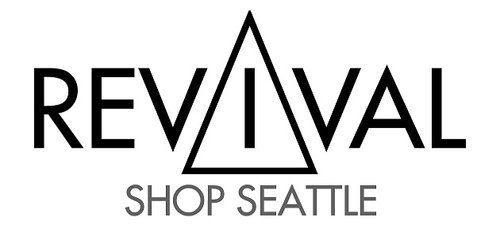
Featured Blog | This community-written post highlights the best of what the game industry has to offer. Read more like it on the Game Developer Blogs or learn how to Submit Your Own Blog Post
Time Well Spent? Six Months of Indie Development
A breakdown of how I used my time during the first 6 months of being an independent game developer.

This post was originally published on @Ryan_Darcey's blog, Making Moves.
For as far back as I can remember, I've been extremely self-motivated. I've never needed parents, teachers or a boss to get moving. I'm actually a pretty hardcore PRE-crastinator (learn more about how that may affect your creative process here). So, the last thing that I thought was going to be a problem when I left 343 Industries and went indie was time management.
But I was wrong. Not necessarily because I didn't have the drive, but because I didn't have the tools to evaluate it. When I realized I had no idea how well I was utilizing my time, I googled around the internet to search for a tool that might help and eventually landed on Toggl. It's pretty simple. Basically, it's a glorified stopwatch, which is perfect. You can read more about it on their website, but I just wanted to introduce it here briefly since I'll be using data from my Toggl account as the focus for this blog post. I can't recommend it enough if you want an honest account of the time you're putting into your project. That presupposes you're actually being honest about the time your tracking, but you've really only got yourself to lie to...so hopefully you're not?
Finally, before I jump in...why am I even writing this blog post? I don't know. I feel like it's kind of interesting data. I would love to know how other folks are breaking down their time as a comparison. Consider this your invitation to share!
TOTAL WORK HOURS
I'm nowhere near ready to announce my game, but I will say that I'm working in UE4, the game is fully 3D (ie. not a sidescroller, top down or 2.5D), I'm pivoting off my genre experience and my mantra is "AAA quality with an independent spirit, scope & budget." Since leaving 343 Industries, I've spent a majority of my time working on "The Game", but not all of my time.
In addition, I co-own a retail shop w/ my partner, Ashley, in the Capitol Hill neighborhood of Seattle called Revival. We sell clothing (among other items) on consignment and the business has been in operation for 2 years and 4 months as of the writing of this blog post. Ashley does a lion's share of the work, but I help out with accounting, graphic design, web development & I'm in the shop at least 2 days a week working the register. So, that's another thing I'm tracking in Toggl. Revival is mostly irrelevant to this post, but for any of y'all pulling double duty I thought my hours working there might be interesting. If I didn't have Revival, I'd probably be trying to bartend a couple nights a week, working Uber/Lyft, etc. So, for comparison, just sub in whatever it is you do to help keep your run going.
That said, here's a breakdown of my total work hours on The Game AND Revival combined for 6 months.
In general, I'm pleased with the work/life balance I'm achieving here. I definitely have more gas in the tank to push things further on The Game side, but this is a 2 year (3 at most?) marathon I'm running. I don't want to burn out too quickly. Also, I had a lot of fun this summer B)
THE GAME VS. REVIVAL
Revival is a big reason why I'm able to make this indie run, so I make sure I pay it the attention it deserves. That said, it's also the biggest conflict of interest when it comes to getting this game made. At the highest level, my time split between The Game and Revival looks like this over my first 6 months as an indie dev:
Or another way to look at it, ~3.4 days a week on The Game and ~2 days a week on Revival.
THE GAME IN MORE DETAIL
As of right now, I'm the only person working full time on The Game, so basically I have to wear all the hats. However, at this stage I'm almost exclusively focusing on Design & Engineering. With that in mind, these are the very general categories of development I'm currently utilizing to track my time and how I choose to define them (for now).
DESIGN - Anything related to Systems Design, Level Design or creating prototype content (ie. modeling, rigging, animating, particle systems, audio, etc). That's a lot for one category, but at this point all the content I generate in this category is in direct service of prototyping systems...so really it's kinda all just Systems Design work.
ENGINEERING - This tag gets used for when I'm coding (duh) or doing research/watching tutorials on coding in UE4.
MEETING - This is a catch all for when I'm "meeting up" with someone (on the phone, meeting in person, at a conference, etc.). It includes things like my weekly Skype call with fellow indie devs, getting feedback from local Seattle devs, chatting with potential partners, meeting w/ lawyers, attending Steam Dev Days, etc...
OTHER - This largely consists of my "Warm Up" time. Usually that makes up about 15-30 minutes of my day when I first sit at my computer, drink coffee, read industry newsletters and try to get my brain working again. I mean, Usain Bolt doesn't just roll out of bed and break world records, amirite?! Ok...actually maybe he does. But anyway...In addition, this includes some of my time spent writing blog posts; but only when I was blogging at home. Most of the time I blog at Revival when it's not busy. Unfortunately, that time is not specifically called out so I don't have a great accounting for my total time spent blogging. My guess is it averages around 8 hours per post, though.
Here's the percentage breakdown of time spent working in those categories for the first 6 months.
I'm not surprised at how much of the work to date has been engineering. It's the most time intensive part when developing prototypes, for sure.
WHAT DOES IT ALL MEAN?!
I think maybe it just means that all of us indie devs should be tracking our time so we can declare that we're putting in as much as we "need" to be putting in with confidence. It takes a little bit of extra discipline to track this data, but I think it's worth it!
 @Ryan_Darcey
@Ryan_Darcey
Read more about:
Featured BlogsAbout the Author
You May Also Like















